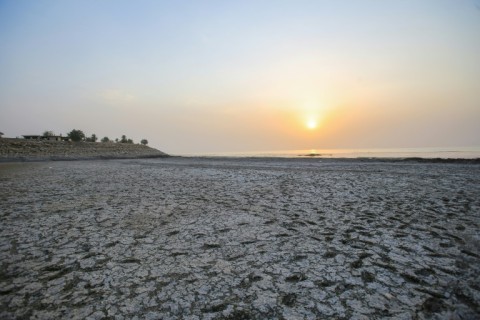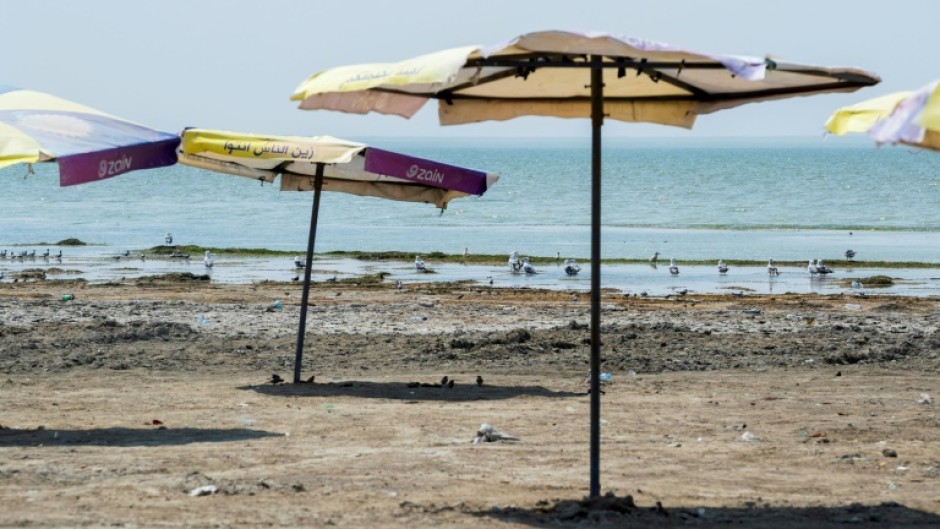BAGHDAD - Yyears of drought have shrunken the majestic Lake Habbaniyah, keeping away the holidaymakers who once flocked there during summer.
Shorelines at Habbaniyah, about 70 kilometres west of the capital Baghdad, have receded by several dozen metres after four consecutive years of drought ravaged parts of the country.
The United Nations ranks water-stressed Iraq as one of five countries most impacted by some effects of climate change.
When full, as it last was in 2020, the lake can hold up to 3.3 billion cubic metres of water, said Jamal Odeh Samir, director of water resources in Anbar province, where Habbaniyah is located.
But now "the lake contains no more than 500 million cubic metres of water", he told AFP.

To get to the water, visitors must walk through foul-smelling mud that was once submerged under the lake surface.
The resort was created around the artificial lake in 1979, becoming a popular destination for tourists from across the Middle East in the following years.
Declining rainfall over the past four years and rising temperatures have hit Habbaniyah -- alongside much of the rest of the country -- hard.
Baghdad blames upstream dam construction by Turkey on a staggering low water level in the Euphrates river, which feeds the lake and also runs through Syria.
"The strategic water reserves in Iraq are at their lowest point" in nearly a century, Khaled Shamal, spokesman for the water resources ministry, has warned.

